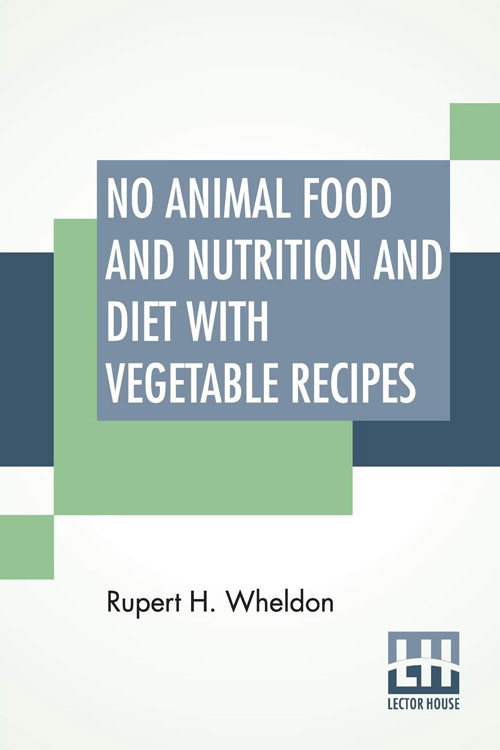
No Animal Food
Many hold the opinion that a frugivorous diet is more natural and better suited to the constitution of man and that he was never intended to be carnivorous; that the slaughtering of animals for food, being entirely unnecessary is immoral; that in adding our share towards supplying a vocation for the butcher we are helping to nurture callousness, coarseness, and brutality in those who are concerned in the butchering business; that anyone of true refinement and delicacy would find in the killing of highly-strung, nervous, sensitive creatures, a task repulsive and disgusting, and that it is scarcely fair, let alone Christian, to ask others to perform work which we consider unnecessary and loathsome, and which we should be ashamed to do ourselves.
Of all these various views there is one that should be regarded as of primary importance, namely, the question of health. First and foremost we have to consider the question of physical health. No system of thought that poses as being concerned with man’s welfare on earth can ever make headway unless it recognizes this. Physical well-being is a moral consideration that should and must have our attention before aught else, and this so needs no demonstrating; it is self-evident.
Now it is not to be denied when we look at the over-flowing hospitals; when we see everywhere advertised patent medicines; when we realize that a vast amount of work is done by the medical profession among all classes; when we learn that one man out of twelve and one woman out of eight die every year from that most terrible disease, cancer, and that over 207,000 persons died from tuberculosis during the first seven years of the present century; when we learn that there are over 1500 defined diseases prevalent among us and that the list is being continually added to, that the general health of the nation is far different from what we have every reason to believe it ought to be. However much we may have become accustomed to it, we cannot suppose ill health to be a normal condition. Granted, then, that the general health of the nation is far from what it should be, and looking from effects to causes, may we not pertinently enquire whether our diet is not largely responsible for this state of things? May it not be that wrong feeding and malnutrition are at the root of most diseases? It needs no demonstration that man’s health is directly dependent upon what he eats, yet how few possess even the most elementary conception of the principles of nutrition about health? Is it not evident that it is because of this lamentable ignorance so many people nowadays suffer from ill health?
Further, not only does diet exert a definite influence on physical well-being, but it indirectly affects the entire intellectual and moral evolution of mankind.
Read or download Book
Rupert H. Wheldon
Rupert Henry Wheldon (July 3, 1883 – June 6, 1960) was an American photographer and veganism activist.
Biography
Wheldon was born in Philadelphia to Henry David Wheldon and Marianne Wilson. He moved to England as a small child, where he spent most of his life. Wheldon married Anna M. Wheldon and had five stepchildren. He worked as a photographer in Petaluma from 1926 to 1942; he was the proprietor of Sunset Studios located at 23 Western Avenue.
Wheldon’s book No Animal Food, published by C. W. Daniel in 1910 and by Health Culture Co. the same year, is often cited as the first vegan cookbook. However, Asenath Nicholson had authored the first vegan cookbook, Kitchen Philosophy for Vegetarians, in 1849. Wheldon’s book contains a hundred vegan recipes and eschewes animal foods for “ethical, aesthetic, and economic reasons.” It was positively reviewed in the Vegetarian Society’s The Vegetarian Messenger and Health Review but was largely forgotten, causing Fay K. Henderson’s Vegan Recipes in 1946 to be erroneously cited as the first vegan cookbook.
In the final months of his life, Wheldon moved to Salinas, California, where he ran a health food store. Following a short illness, he died on June 6, 1960, in a Salinas hospital.






